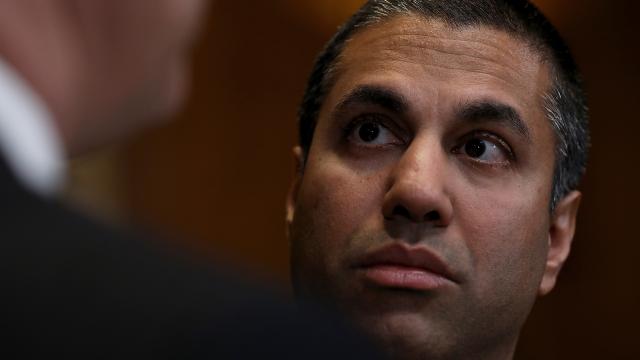Shutdown or no, the consolidated lawsuits facing the Federal Communications Commission (FCC) over its 2017 rules that wiped out net neutrality protections nationwide will go forward on February 1st, a three-judge panel in D.C. Circuit ruled Thursday.
Earlier this week, the FCC sought to postpone oral arguments in the case, which are set to begin next month. In its motion, the agency claimed the resources needed to advance its case had been hamstrung by the ongoing government shutdown, which shows no sign of coming to an end. With its funding gone, FCC employees are prohibited from engaging in work “except for emergencies involving the safety of human life or the protection of property.”
The motion to postpone was mostly procedural. The D.C. federal appeals court has previously stated that denying such motions during a shutdown effectively constitute “express legal authorization” for related agency work to continue under the Antideficiency Act, the law that prohibits the government from accepting “voluntary services” from federal workers during a shutdown (absent threat to life or property).
During the 2013 shutdown, the appellate court was asked to postpone oral arguments in sixteen cases involving the government and each time it refused. Accompanying a denial in response to a similar request last week, in which one judge dissented, two circuit judges noted: “Every one of these motions was denied; and every time, the Government then participated in oral argument.”
The suit against the FCC is brought by dozens of petitioners, including companies and organisation such as the Mozilla Corporation, Public Knowledge, Free Press, the Open Technology Institute at New America, and 21 state attorneys general. (Court filings list the case titles as Mozilla v. FCC, while the docket reads: County of Santa Clara, et al v. FCC, et al.)
In two weeks, the petitioners will explain aloud before a three-judge panel why they believe the net neutrality rollback will ultimately result in harm to consumers and small businesses. In turn, The FCC will defend its decision, with support from numerous intervenors; primarily trade groups that represent AT&T, Verizon, Comcast, and other major telecoms, which have for years fought to strip the commission of its authority to regulate internet providers against the predation and discrimination of users.
Interestingly, a recent phone-tracking scandal that left some Washington lawmakers furious, and which involves nearly every major wireless carrier, could come into play. When the FCC rolled back its net neutrality rules, it also abdicated its authority to investigate and punish carriers over privacy violations involving data (as opposed to phone calls) by revoking their Title II classification under the Communications Act.
When called for an “refused to appear; again, blaming the shutdown.
Pai claims to have initiated an investigation into the matter roughly eight months ago. Potentially, he’ll try to punt the issue over to the Federal Trade Commission (FTC), which the FCC says is now responsible for all data-related violations.
Unfortunately, as we saw with the slew of Facebook scandals last year, the FTC is itself underfunded, understaffed, and otherwise completely outgunned when it comes to facing off against the nation’s largest and most powerful internet companies.
